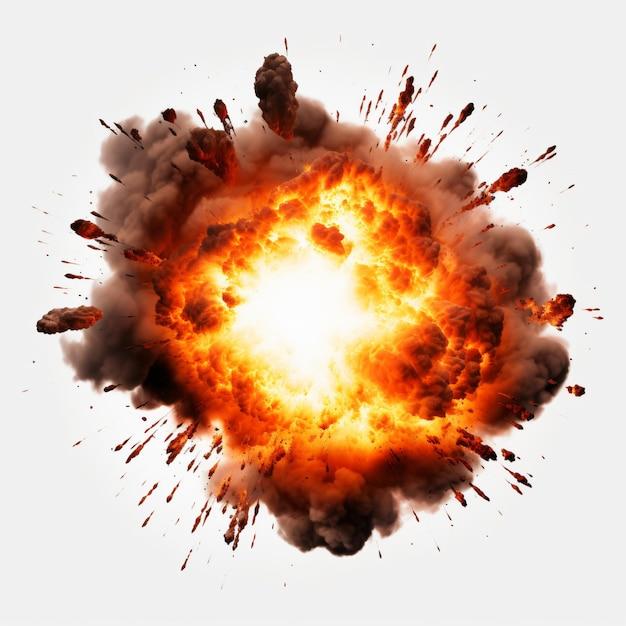Bleach is a versatile household cleaning product used for disinfecting surfaces, whitening clothes, and removing tough stains. However, concerns arise about its safety when exposed to heat. Can bleach really explode when subjected to high temperatures? In this blog post, we will delve into the truth behind this popular question.
Many people wonder if it is safe to leave bleach in a hot garage, put it in a water heater, or even store it in a plastic container. Additionally, the possibility of bleach causing an explosion when exposed to other substances or in specific situations, such as microwaving or mixing it with urine, is a common concern. To gain a comprehensive understanding, we will address these queries and more, providing you with valuable insights to ensure your safety and the proper handling of bleach.
Stay tuned as we explore the heat sensitivity of bleach, its potential risks, and the precautions you should take to prevent any mishaps. So, without further ado, let’s uncover the truth about bleach in heat!
Remember safety first!

Does Bleach Explode in Heat
Bleach is a common household product that many of us use for cleaning purposes. But have you ever wondered what happens if bleach is exposed to high temperatures? Does it explode like a science experiment gone wrong? Let’s dive into the world of bleach and heat to uncover the truth behind this burning question.
The Chemistry Behind Bleach
Before we tackle the explosive aspect, let’s take a quick look at the chemistry of bleach. Bleach, or sodium hypochlorite (NaOCl), is a powerful oxidizing agent that works by breaking down molecules through oxidation. It is commonly used as a disinfectant and whitening agent due to its ability to remove stains and kill bacteria.
Bleach and Heat: The Sizzling Debate
Now, let’s get back to the question at hand. Does bleach explode in heat? The short answer is no, bleach doesn’t explode when exposed to high temperatures. Phew, crisis averted! However, it’s important to note that bleach can undergo some chemical transformations when heated excessively.
The Temperature Threshold
Bleach begins to decompose when exposed to temperatures above 60 degrees Celsius (140 degrees Fahrenheit). As the heat rises, bleach molecules break down, releasing chlorine gas (Cl2) and oxygen gas (O2). This reaction is exothermic, meaning it releases heat as a byproduct. So while bleach itself may not explode, the reaction can still produce significant heat.
Safety First – Keep the Heat in Check
Although bleach doesn’t explode in heat, it’s still essential to handle it with caution. When using bleach in hot environments or during high-temperature processes, it’s important to ensure proper ventilation to prevent the accumulation of potentially harmful chlorine gas. Always follow the instructions provided by the manufacturer and maintain a safe working environment.
Fun Fact – Bleach and Sunlight
While heat may not make bleach explode, there’s an interesting phenomenon to note. Leaving bleach in direct sunlight can cause it to degrade more rapidly. The combination of heat and UV radiation from the sun can accelerate bleach decomposition, reducing its effectiveness over time. So, it’s best to store bleach in a cool, dark place to maintain its potency.
To put your worries at ease, bleach does not explode when exposed to heat. However, extreme temperatures can lead to its decomposition, releasing chlorine and oxygen gases. It’s always crucial to handle bleach safely and ensure proper ventilation when working in hot environments. Remember, bleach is a useful cleaning agent, but it’s important to respect its chemical properties and follow safety guidelines.
Stay cool, keep it clean, and don’t let the heat make you bleach out!

FAQ: Does Bleach Explode in Heat
Can you put bleach in a water heater
No, it is not recommended to put bleach in a water heater. Bleach contains chlorine, which can corrode the internal components of the water heater and potentially cause damage. It’s best to avoid using bleach in appliances that heat water.
What happens when bleach gets hot
When bleach gets hot, it can release chlorine gas, which is highly toxic. The heat causes the chemical reaction within the bleach to accelerate, leading to the release of chlorine gas. This can be extremely dangerous and should be avoided.
Why did my bleach bottle explode
Bleach bottles can explode when exposed to high heat because the heat causes the bleach to expand rapidly. This increased pressure inside the bottle can result in an explosion. It’s important to store bleach in a cool and well-ventilated area to prevent such incidents.
Is bleach heat-sensitive
Yes, bleach is heat-sensitive. Exposing bleach to high temperatures can lead to chemical reactions that release chlorine gas or cause the bleach to expand rapidly, potentially resulting in explosions or other hazardous situations. It’s essential to handle bleach with caution and store it in a cool environment.
Can bleach be stored in a hot garage
It’s not advisable to store bleach in a hot garage. The high temperatures in a garage, especially during the summer months, can cause the bleach to deteriorate more quickly. This can result in reduced effectiveness and potential chemical reactions that could be hazardous. It’s best to store bleach in a cool and well-ventilated area.
What happens if you microwave bleach
Microwaving bleach is extremely dangerous and should never be attempted. When exposed to high heat, the bleach can release toxic chlorine gas, which can cause severe respiratory problems and even be fatal. Always follow safety guidelines and never use a microwave to heat or treat bleach.
Can bleach start a fire
Although bleach is not flammable, it is still possible for bleach to start a fire indirectly. If bleach comes into contact with flammable materials, such as oils or other combustible substances, it can create a chemical reaction that may lead to fire. It’s crucial to use bleach carefully and keep it away from flammable materials.
Can you put bleach in an oven
No, bleach should never be put in an oven. Bleach is a potent chemical that can release toxic fumes or even explode when exposed to high temperatures. It’s important to use bleach according to the manufacturer’s instructions and avoid using it in situations where it may be exposed to heat sources like ovens.
Can I put bleach in a plastic container
Yes, you can put bleach in a plastic container, but it’s important to use the right type of plastic. Bleach is corrosive and can react with certain types of plastic, causing it to break down or leach harmful chemicals into the bleach. It’s recommended to use containers made from high-density polyethylene (HDPE) when storing bleach.
What can cause bleach to explode
Bleach can explode when subjected to high temperatures or when combined with certain other chemicals. Exposing bleach to heat can cause it to expand rapidly, potentially leading to an explosion. Additionally, mixing bleach with ammonia, acids, or certain other cleaning agents can create chemical reactions that produce toxic gases and increase the risk of an explosion. It’s crucial to handle bleach with care and store it properly.
Is it safe to boil bleach
No, it is not safe to boil bleach. Boiling bleach can release chlorine gas, which is toxic and can cause severe respiratory issues. Furthermore, the high heat can cause the bleach to expand rapidly, leading to an explosion. It’s important to never boil bleach and follow proper safety precautions when using it.
Will bleach and urine explode
Mixing bleach and urine can produce a chemical reaction that produces toxic gases, such as chloramine and nitrogen trichloride. While it may not necessarily cause an immediate explosion, it can release harmful fumes that can be dangerous to inhale. It’s best to avoid mixing bleach with any other substances, including urine.
Can you make bleach explode
Attempting to deliberately make bleach explode is incredibly dangerous and should never be done. Bleach can release toxic gases or even explode when subjected to certain conditions, such as high heat. It’s important to handle bleach with caution and follow recommended storage and usage guidelines to prevent accidents.
What are two chemicals that explode when mixed
Mixing bleach with ammonia or acids, such as vinegar or toilet bowl cleaners containing hydrochloric acid, can produce toxic gases and potentially cause an explosion. These chemical combinations release chlorine gas, chloramine gas, or other hazardous substances. It’s vital to avoid mixing bleach with any substances, especially those containing ammonia or acids.
Can bleach be left in the sun
It’s not recommended to leave bleach in direct sunlight for extended periods. The UV rays in sunlight can cause the bleach to break down and lose effectiveness over time. It’s best to store bleach in a cool and dark place to ensure its potency.
How fast does bleach break down in sunlight
The breakdown rate of bleach in sunlight can vary depending on various factors such as concentration, temperature, and exposure duration. Generally, when exposed to direct sunlight, bleach can start to degrade within a few days. Over time, the active components of bleach break down, leading to reduced effectiveness.
Will a soda can explode in a hot car
Leaving a soda can in a hot car can increase the risk of it exploding. Carbonated beverages contain pressurized gases that can expand when exposed to high temperatures. This pressure build-up can cause the can to burst or explode, potentially creating a messy and dangerous situation.
Can you leave chlorine in a hot car
It is not recommended to leave chlorine in a hot car. High temperatures can cause the chlorine to deteriorate more quickly, reducing its effectiveness as a sanitizer or disinfectant. Additionally, the heat can cause chlorine containers to expand, potentially leading to leaks or explosions. It’s best to store chlorine products in a cool and well-ventilated area.
Can you leave bleach in the heat
Leaving bleach in high temperatures is not advisable. The heat can cause the bleach to deteriorate more quickly, reducing its effectiveness. If exposed to extreme heat, bleach containers can also expand and potentially result in leaks or explosions. To maintain the potency and safety of the bleach, it’s best to store it in a cool environment.
At what temperature does bleach become ineffective
Bleach can become less effective at higher temperatures, but there is no specific temperature at which it becomes completely ineffective. The rate of degradation increases with temperature, so it’s best to store bleach in a cool place to maintain its potency. However, even if exposed to higher temperatures, bleach may still have some sanitizing properties, although they may be reduced.
What happens if I pour bleach in the gas tank
Pouring bleach into a gas tank can have severe consequences for a vehicle. Bleach is corrosive and can damage the fuel system components, including rubber seals and gaskets. This can lead to fuel leaks, engine damage, and potentially render the vehicle inoperable. It’s essential to avoid introducing bleach or any other foreign substances into the gas tank.
Can I leave bleach in the car
It’s generally not advisable to leave bleach in a car, especially in extreme temperatures. High heat can cause the bleach to deteriorate more rapidly, reducing its effectiveness. Additionally, bleach containers can expand and potentially lead to leaks or explosions. To ensure safety and maintain the quality of the bleach, it’s best to store it in a cool and well-ventilated area.
Is bleach flammable in a dryer
Bleach is not flammable and does not ignite easily. However, if combined with other flammable substances, such as oils or solvents, there is a potential risk for a fire. It’s important to handle bleach with care, keep it away from flammable materials, and follow proper usage guidelines to prevent accidents in the dryer or any other environment.